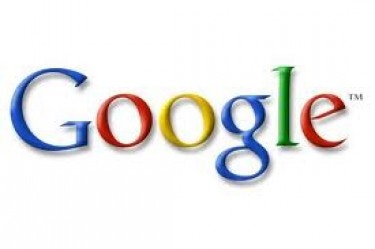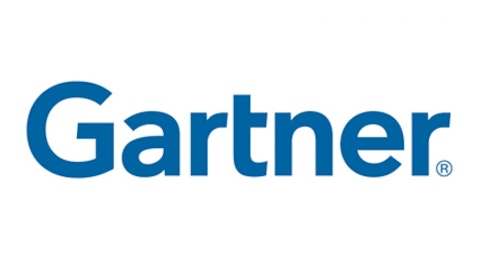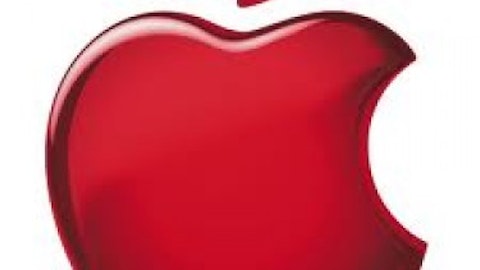Google Inc (NASDAQ:GOOG) Glass is expensive.
Google Glass is unwieldy.
Google Glass is kooky.
Google Glass is something that only rich people can afford to buy and…
Whoa. Stop right there, please.
We just hit on the reason why Google Inc (NASDAQ:GOOG) Glass can’t miss clicking in the U.S. marketplace. It has become recognized as a certifiable American status symbol — and Google Inc (NASDAQ:GOOG) couldn’t be more tickled about this evolution.
Google Inc (NASDAQ:GOOG) Glass follows neatly on the heels of the array of Apple Inc. (NASDAQ:AAPL) products which have as much appeal as status symbols as technological marvels. In their heyday, Apple Inc. (NASDAQ:AAPL)’s computers, phones, tablets and music devices shouted, “I’m a member of a selective club. I fly first-class, buddy, even on a short flight.” As Apple’s luster has faded and competitors have challenged the company, Google Inc (NASDAQ:GOOG) has assumed the mantle of a company boasting innovation and snob appeal.
Google Inc (NASDAQ:GOOG)’s methods deserve some examination. In March, Business Insider pointed out: “Google has selected 8,000 regular people to try out Google Glass, effectively turning its computerized headset into the ultimate status symbol.”
But it is a status symbol that looks unattractive and cumbersome. That’s largely why Google Glass has many detractors. People get the feeling that Google is trying to sell us a gimmick, at least at this early stage.
In May, National Journal observed: “Mocking Glass for its impracticality, goofiness and — oh yeah — its creep factor has become something of a national pastime. There’s nothing wrong with a little satire, particularly when it’s aimed at a company that presumes to tell us what we want before we know it.”
Google was obviously quite shrewd, all along, to present Google Glass an object of snob appeal. In February, Google began taking applications from ordinary citizens to become a part of its exclusive Google Glass Explorer Program and test-drive the sought-after product. To gain access to one of the contraptions, you had to prove you were worthy by informing Google what you wanted to do.
Google played the Glass frontier to the hilt, squeezing out every bit of marketability. It took the application on its Google Plus site and Twitter. The people who wanted to apply had to denote their applications with the hashtag “#ifihadglass.” According to media speculation, there were eventually 145,000 references to #ifihadglass on Twitter and Google+.
Out of all those applicants, Google only selected 8,000 people. By making Google Glass look exclusive, the company succeeded it giving it a special aura and allowing a word-of-mouth appeal to build.
Google Glass is benefiting from its newness. It represents the new frontier of what Silicon Valley and retailers call “wearable technology.”
With this device, Google is borrowing heavily from the time-honored Apple game plan. As Apple repeatedly did brilliantly, during the reign of the late, great Steve Jobs, Google is intent on marketing something that people don’t really need to be happy or successful — but somehow feel that they cannot do without.
Google Glass is a head-mounted instrument that costs in the neighborhood of four figures and gives the customer a look-ma-no-hands technological dalliance. It connects to the Web by Wi-Fi or by a smartphone and contains the means to take photographs, record video, spark video conversations, transmit messages, conduct Google searches, and do additional services.
There is practically no doubt that the technology industry will follow suit, in one way or another.
Ironically, here, Apple is being cast in the uncomfortable role of follower, whatever kind of product it eventually rolls out for consumers. It is reportedly working feverishly on developing a smart watch.
Tim Cook, the low-key Apple CEO, hardly betrayed any of the company’s secrets when he acknowledged at the recent D11 conference that Apple is rather curious. Cook is not given to bouts of glibness or exhilaration, so it was telling when he conceded that he regards the idea of someone WEARING a computer to be nothing less than “profoundly interesting.”
Cook, perhaps hoping to tweak his competitors at Google, allowed that the notion of smart glasses appeared to him to be “risky,” but wearing something on your wrist, by contrast, seemed to be perfectly “natural.”
It’s clear that these devices have already invaded our zeitgeist and become woven into the fabric of American popular culture. The Wall Street Journal did a piece about Google Glass etiquette. (Rule No. 1: “Always remember: You have a camera on your head.”) CNBC’s Carl Quintanilla gave Google Glass a test drive on the air, underscoring how much buzz the device has already amassed in only a few months.
No, I concede that Google Glass will not be a slam-dunk. Glass, first off, lacks the price and practically of Apple, so marketing Glass will present an immediate challenge. The price tag, north of $1,000, might scare off some consumers.
Like the iPhone 4’s voice-modulated answer woman, Siri, Glass might wind up looking like so much hype with little actual substance to back it up. Like many people, I was captivated by those nifty TV commercials for Siri and figured, hey, if it could make John Malkovich, Samuel L. Jackson, and Zooey Deschanel happy, I’ll enjoy it as well. (Fooled again!).
So, what will be the fate of Google Glass?
Let’s recap the innovation. It is unnecessary and unattractive. It is costly and crass. It appeals largely to people who feel a need to show off their wealth and exalted station in society.
It is utterly faddish. And it preys upon our desire to feel cool, regardless of the cost.
Come on. This has success written all over it.
The article Google Glass Is So Costly and Kooky That It Can’t Miss originally appeared on Fool.com.
Jon Friedman has no position in any stocks mentioned. The Motley Fool recommends Apple and Google. The Motley Fool owns shares of Apple and Google.
Copyright © 1995 – 2013 The Motley Fool, LLC. All rights reserved. The Motley Fool has a disclosure policy.






